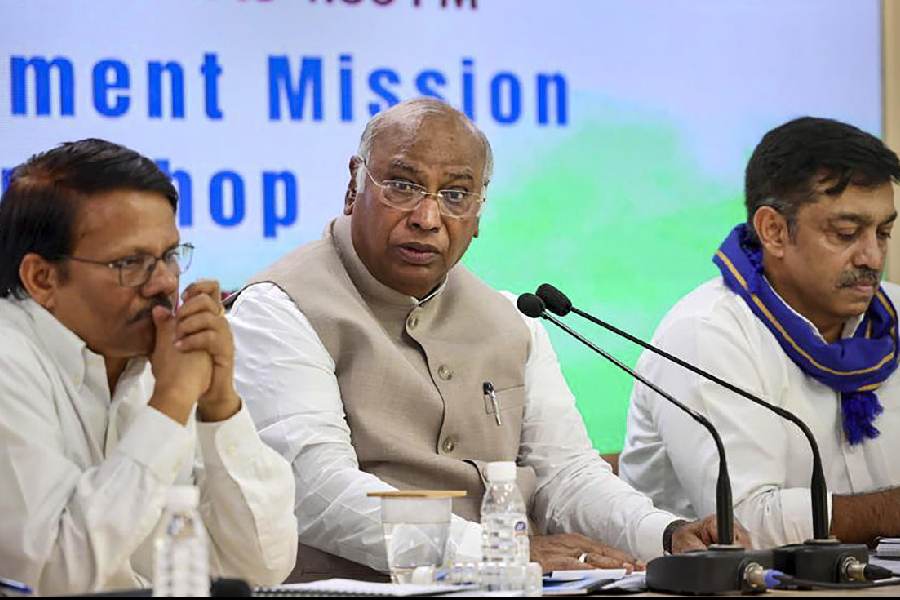Congress president Mallikarjun Kharge has declared the party’s intent to advance the social justice agenda, following up on the decision to give 50 per cent reservation to Dalits, OBCs, tribals and minorities at all levels in the organisational structure.
The Congress has also started an outreach to mobilise Dalits, tribals, OBCs and minorities through its National Leadership Development Mission for the 2024 parliamentary elections.
At the first conference of Leadership Development Mission coordinators, Kharge said people from the backward castes and minority communities should develop their own political clout instead of relying on the mercy of entrenched forces.
“Work hard for the development of your own political strength instead of acting like lackeys of big leaders,” Kharge said while promising full support to the mission.
Aware of the possibility of the mission creating parallel networks of influence within the party, Kharge warned the coordinators against internal fights and factionalism.
“At times, personal interests encourage people to fight. There are occasions when you feel disappointed. I had such experiences. But now I am heading the party. Have patience and feel contended that you are fighting to save democracy and the Constitution,” the Congress chief said.
The mission was conceived at the Udaipur Chintan Shivir of the Congress. While the mission is aimed at bringing the backward classes, adivasis and minorities into the Congress fold, it also identifies leaders from these communities for contesting elections. National Leadership Development Mission teams have been formed in all the Assembly constituencies under a coordinator and they work in tandem with the party’s district units.
Though the mission is now operational in only 61 reserved parliamentary constituencies in 18 states, the party plans to expand its activities.
The AICC departments of SC-STs, OBCs and minorities are jointly handling the project under the guidance of the national coordinator of these departments, K. Raju. Raju said the mission was active in 500 Assembly constituencies but would now be expanded to 1,000 seats.










